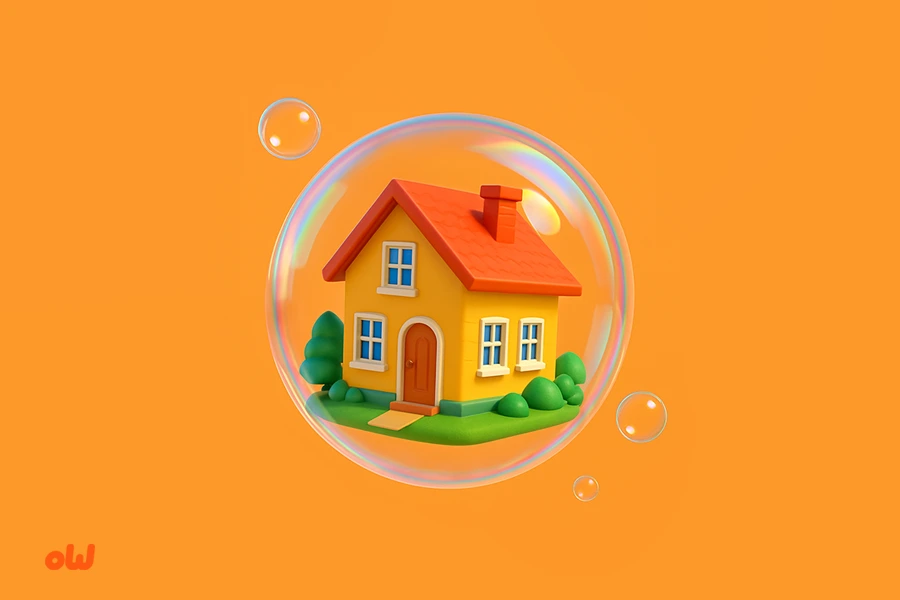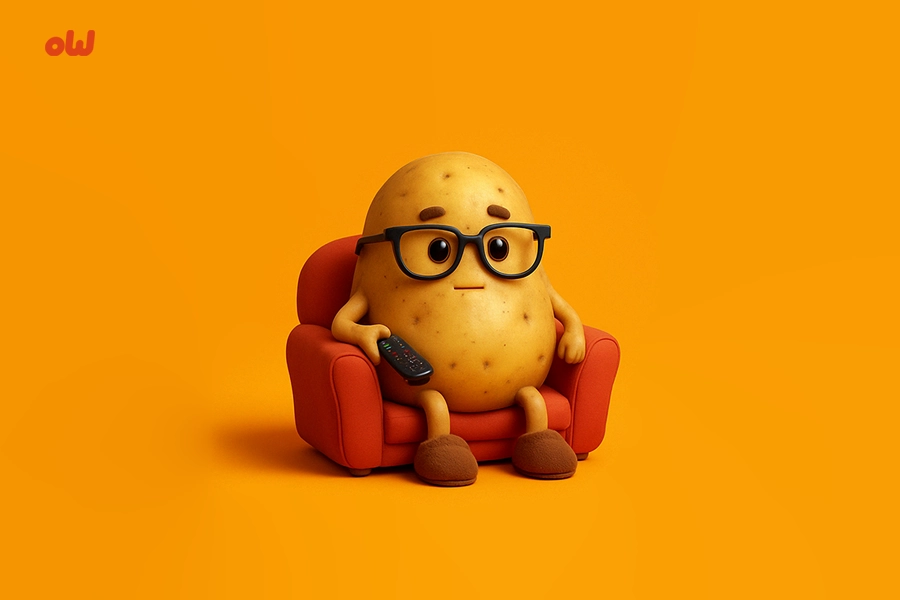Quiz: Do You Live in a Bubble?

You wake up to discover: you’ve spent the last five years living inside a giant soap bubble. All your friends think just like you do. The news you read confirms your beliefs. Music, movies, books – everything resonates with your worldview. Does this sound comforting? Or terrifying?
Our “Do You Live in a Bubble?” quiz will help you understand just how airtight your information cocoon really is. But before you click on the first question, let’s explore why this question is even worth asking.
The Phenomenon of the “Information Bubble” in the Modern World
The term “filter bubble” was coined by internet activist Eli Pariser in 2011, but the phenomenon itself is as old as humanity. People have always sought to surround themselves with like-minded individuals – from primitive tribes to medieval guilds. The difference is that geographical and social barriers once naturally forced us to encounter different viewpoints. Today, algorithms create a personalized universe for each of us.
An information bubble isn’t just a collection of similar opinions around you. It’s a complex ecosystem where several elements intertwine:
Algorithmic Selection: Search engines and social networks analyze thousands of parameters of your behavior. Every click, like, and viewing time is a brick in the wall of your digital ghetto. YouTube won’t show you videos about quantum physics if you’ve been watching only cooking shows for months.
Cognitive Biases: Our brain is a lazy organ. It conserves energy by filtering out information that doesn’t fit our existing worldview. Psychologists call this “confirmation bias.” We literally don’t notice facts that contradict our beliefs.
Social Homophily: “Birds of a feather flock together” – this principle describes our tendency to gravitate toward similar people. Offline, this is limited by physical space. Online? You can create a social circle of thousands of clones of yourself.
The paradox is that while living in an era of unprecedented access to information, we’re becoming more narrow-minded. An MIT study showed that fake news spreads on Twitter six times faster than truthful news. Why? Because it’s perfectly tailored to our prejudices.
How Our Quiz Works and What It Will Show
The “Do You Live in a Bubble?” quiz isn’t a test with right answers. It’s a mirror that will show the contours of your information space. The methodology is based on principles of:
- Multidimensional Analysis: Questions cover different spheres – from media consumption to social circles. You might be open in one area and closed in another.
- Behavioral Markers: Instead of direct questions about beliefs, the quiz focuses on actions. When did you last read a source with opposing views? Do you have friends from different generations?
- Gradient Assessment: The result isn’t a binary “in a bubble/not in a bubble,” but a spectrum. You’ll see in which areas your bubble is stronger and where there are windows to the outside world.
Important: the quiz doesn’t judge. Some degree of “bubble” is natural and even necessary for psychological comfort. The question is about balance between the safety of the familiar and the challenge of the unknown.
Types of “Bubbles” You Might Find Yourself In
Information bubbles aren’t monolithic – they’re layered like an onion. You might be a cosmopolitan in cultural matters but narrow-minded in professional ones. Or vice versa: open to different ideologies but locked in a generational echo chamber. Let’s examine five main types of isolation that the quiz will help identify.
Ideological Bubble
The most obvious and discussed type. You read only “your” media, follow bloggers from one political spectrum, befriend only like-minded people. The danger: losing the ability to dialogue and compromise. In extreme cases – radicalization.
Professional Bubble
“All my friends are programmers.” Or lawyers. Or artists. Professional deformation intensifies when work becomes the only lens through which you view the world. You start measuring everything in terms of your industry, losing the bigger picture.
Cultural Bubble
You listen to only one genre of music, watch films from one country, read books of similar themes. A cultural mono-diet impoverishes your emotional spectrum and limits creativity.
Geographic Bubble
Metropolis vs. province, city vs. countryside, West vs. East. A geographic bubble creates the illusion that your local experience is universal. “Everyone lives like this” is a dangerous delusion.
Generational Bubble
Boomers, millennials, Gen Z – each generation creates its own information cocoon. The absence of intergenerational dialogue leads to mutual misunderstanding and conflicts over nothing.
Ways to Expand Your Horizons: From Theory to Practice Through the Quiz
Quiz results are a map of your bubble. What should you do with it? Here are strategies adapted for different types of “bubbles”:
- The “Uncomfortable Source” Rule: Once a week, read media with opposing views. Not to change your mind, but to understand the logic of the “other side.”
- Random Encounters: Algorithms kill serendipity – chance discoveries. Bring it back: attend events outside your field, read a random Wikipedia page, listen to podcasts recommended by a random number generator.
- Intergenerational Mentoring: Find a mentor 20 years older and a mentee 20 years younger. Their worldview will surprise you.
- Deep Travel: Instead of tourist routes, immerse yourself in local communities. Couchsurfing, volunteering, language exchanges – ways to see the world through others’ eyes.
- Intellectual Cross-Training: If you’re a techie – read philosophy. Humanities person? Try programming. A brain forced to work in an unfamiliar mode breaks down mental barriers.
- Dissonance Diary: Record moments when information causes rejection. These are markers of your bubble’s boundaries. Explore them.
The quiz will show which of these strategies are most relevant specifically for you. Perhaps your ideological bubble is minimal, but your cultural one is impenetrable. Or vice versa.
Remember: the goal isn’t to completely destroy all bubbles. That’s impossible and harmful. The goal is to make the walls semi-permeable. So you can peek outside when you want to. And let in something new when you’re ready.
The world beyond the bubble can be uncomfortable, contradictory, complex. But it’s also rich, amazing, full of possibilities. The quiz is your first step toward exploring it. Ready to find out how strong the walls of your soap castle are?
Questions Overview 🧠
- The same 2-3 news sources I always trust
- My preferred sources first, then maybe one opposing viewpoint
- Multiple sources including international outlets
- A wide range including citizen journalists, foreign press, and local community voices
- Politely decline - it's not really your thing
- Stop by briefly to be neighborly but don't stay long
- Attend with genuine interest and try several new things
- Help them organize it and invite others from different communities
- Rarely - my social circle is mostly in my economic bracket
- Occasionally through work or service encounters
- Regularly - I maintain friendships across economic lines
- Daily - my community involvement ensures constant economic diversity
- Avoid it completely and mock it with like-minded friends
- Watch clips later to confirm why you disagree
- Attend to understand their supporters' perspectives
- Organize a discussion group afterward with attendees from both sides
- Content that perfectly aligns with my interests and beliefs
- Mostly familiar content with occasional surprises
- A mix because I actively follow diverse accounts
- Constantly challenging content because I regularly reset my preferences
- A neighborhood where people share my values and lifestyle
- Convenience and safety, with some diversity as a bonus
- A genuinely mixed community with different backgrounds
- The most culturally and economically diverse area possible
- Distance yourself from them gradually
- Avoid that topic to preserve the friendship
- Have honest discussions to understand their perspective
- Use it as an opportunity to examine your own assumptions
- Just my native language
- My language plus bits of another in media or signs
- Three or more through work, community, or intentional exposure
- Multiple daily through diverse community engagement
- Find a new favorite serving familiar food
- Try it once out of curiosity
- Research the cuisine and become a regular
- Learn to cook some dishes and share with others
- Defend your position and find sources that support it
- Listen politely but probably won't change your mind
- Research their claims thoroughly before responding
- Thank them and reevaluate your entire framework
- Media portrayals and assumptions
- Occasional interactions and observations
- Direct relationships and conversations
- Personal experience across multiple economic situations
- Maintain polite distance to avoid awkwardness
- Exchange pleasantries but keep interactions surface-level
- Learn about their practices and share your own
- Find ways to celebrate both your traditions together
- Rarely - I stick to what I know I'll enjoy
- A few times a year when highly recommended
- Monthly, as part of broadening my perspective
- Weekly - it's essential to my media diet
- Complain privately to those who share your view
- Follow it reluctantly without trying to understand
- Seek education about the cultural context
- Facilitate discussions to help everyone understand different perspectives
- All-inclusive resorts or familiar hotel chains
- Tourist areas with occasional local restaurant visits
- Mixing tourist sites with local neighborhoods and customs
- Complete immersion in local life, avoiding tourist areas






